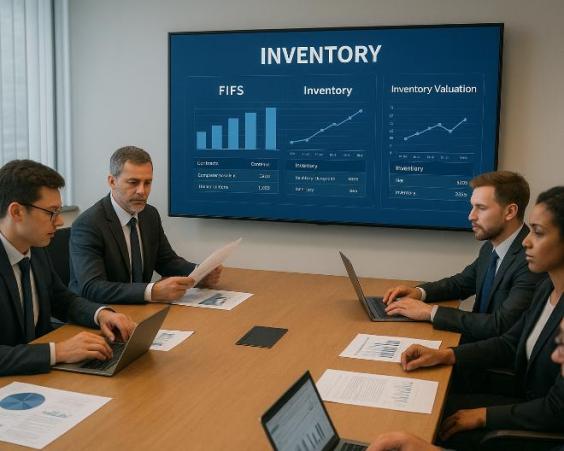Kardex and IFRS 15 Normative: How it Affects Inventory Valuation in Complex Contracts.
Kardex and IFRS 15: How it Affects Inventory Valuation in Complex Contracts
IFRS 15, also known as "Revenue from Contracts with Customers", is an international accounting standard that sets out the principles for recognizing revenue in a company's financial statements. In this article, we will explore how IFRS 15 affects inventory valuation in complex contracts and how Kardex inventory management system can help companies comply with these requirements.

What is IFRS 15?
IFRS 15 is an international accounting standard that applies to most companies operating in the global market. This standard sets out the principles for recognizing revenue in a company's financial statements, and its objective is to provide a consistent and coherent basis for presenting revenue in financial statements.
Key Requirements of IFRS 15
IFRS 15 sets out several key requirements that companies must comply with when recognizing revenue in their financial statements. Some of the most important requirements are:
- Identify contracts with customers: Companies must identify contracts with customers and determine whether it is a single contract or multiple contracts.
- Determine the transaction price: Companies must determine the transaction price, which is the amount expected to be received in exchange for the delivery of goods or services.
- Identify performance obligations: Companies must identify performance obligations, which are the obligations to deliver goods or services to customers.
- Recognize revenue: Companies must recognize revenue when the conditions for the delivery of goods or services are met.
How Does IFRS 15 Affect Inventory Valuation in Complex Contracts?
IFRS 15 can affect inventory valuation in complex contracts in several ways. Some of the ways in which IFRS 15 can affect inventory valuation are:
- Revenue recognition: IFRS 15 requires companies to recognize revenue when the conditions for the delivery of goods or services are met. This can affect inventory valuation, as companies must value inventories based on the transaction price rather than historical cost.
- Inventory valuation: IFRS 15 requires companies to value inventories based on the transaction price, which may be different from historical cost. This can affect inventory valuation, as companies must adjust the value of inventories to reflect the transaction price.
- Identification of performance obligations: IFRS 15 requires companies to identify performance obligations, which are the obligations to deliver goods or services to customers. This can affect inventory valuation, as companies must value inventories based on performance obligations rather than historical cost.
How Can Kardex Inventory Management System Help Companies Comply with IFRS 15?
Kardex inventory management system can help companies comply with IFRS 15 in several ways. Some of the ways in which Kardex can help companies comply with IFRS 15 are:
- Inventory valuation: Kardex can help companies value inventories based on the transaction price, which is a key requirement of IFRS 15.
- Identification of performance obligations: Kardex can help companies identify performance obligations, which are the obligations to deliver goods or services to customers.
- Revenue recognition: Kardex can help companies recognize revenue when the conditions for the delivery of goods or services are met.
- Reporting and analysis: Kardex can provide detailed reports and analysis on inventories, which can help companies comply with the requirements of IFRS 15.
Conclusion
IFRS 15 can affect inventory valuation in complex contracts in several ways. Kardex inventory management system can help companies comply with IFRS 15 by providing an efficient and effective way to value inventories, identify performance obligations, and recognize revenue. By implementing an inventory management system like Kardex, companies can ensure compliance with the requirements of IFRS 15 and improve the accuracy and transparency of their financial statements.





